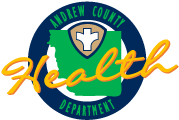Emergency situations can occur with little warning, making advance preparation essential for protecting your family's safety and well-being. The Andrew County Health Department provides resources and guidance to help residents prepare for various emergency scenarios that may affect our community.
Common Emergency Situations in Andrew County
Andrew County residents may face several types of emergency situations, including tornadoes, flash floods, ice storms and power outages, disease outbreaks, heat waves, and hazardous material incidents. Understanding these potential risks helps families prepare appropriately for local conditions.
Building an Emergency Supply Kit
An emergency supply kit should contain essential items to sustain your family for at least 72 hours. Basic supplies include bottled water (one gallon per person per day), non-perishable food and manual can opener, flashlight with extra batteries, first aid kit, phone chargers and power banks, weather radio, personal hygiene items, medications and medical supplies, extra clothing and blankets, copies of important documents, and cash in small bills.
Customize your emergency kit based on the specific needs of household members, including infants, seniors, pets, or individuals with medical conditions requiring special supplies.
Creating a Family Emergency Plan
A family emergency plan should address key elements including escape routes from your home and neighborhood, designated meeting locations both near your home and outside your immediate area, emergency contact information with phone numbers memorized by all family members, and communication methods for staying in touch if separated during an emergency.
Keep printed copies of your emergency plan in multiple locations including backpacks, vehicles, and emergency supply kits.
Staying Informed During Emergencies
The Andrew County Health Department provides important health and safety information during emergency situations. This may include severe weather warnings, public shelter locations, boil water advisories, road closures and detours, and disease outbreak or exposure alerts.
Residents should sign up for local alert systems, follow official social media accounts, check the health department website regularly during emergencies, and maintain a weather radio for updates when other communication methods are unavailable.
Home Preparedness Measures
Consider implementing safety measures in your home such as anchoring large furniture to prevent tipping, installing and maintaining smoke detectors and carbon monoxide alarms, keeping vehicle fuel tanks at least half full, maintaining property by trimming trees and clearing gutters, and reviewing insurance policies to understand coverage.
Preparing Children for Emergencies
Help children understand emergency procedures through age-appropriate discussions and practice. Ensure children know how to call 911, recognize emergency alarms, locate exits, find your emergency kit, and contact a trusted adult. Regular practice of emergency procedures can help children respond appropriately during actual emergencies.
Andrew County Health Department Emergency Services
The health department participates in emergency preparedness and response through coordination with local and state emergency response agencies, community health alerts and safety communications, public health response during disease outbreaks, assistance with emergency shelter information and public messaging, and preparedness resources and planning materials.
Additional Resources
For emergency preparedness resources, planning templates, and local emergency information, visit andrewcountyhealth.com or contact the Andrew County Health Department directly. The department provides community-specific guidance and tools to support family emergency planning efforts.




